Math Skills
Enhance your child’s math skills with our Math Skills Home Therapy Resources. These tools support learning from basic concepts to advanced topics, fostering critical thinking and problem-solving for confident, competent mathematicians.

Explore the Best Math Skills Resources for Kids
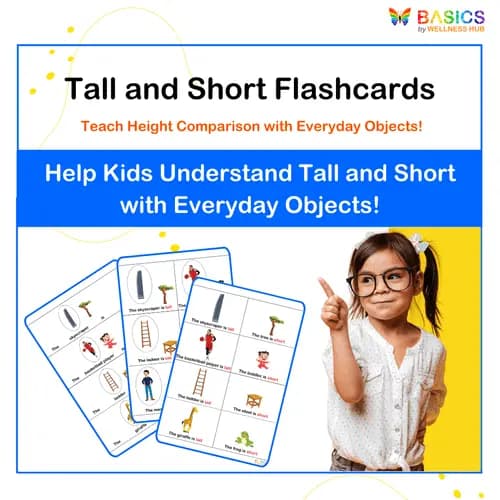
Tall and Short Flashcards: Teach Height Comparison with Everyday Objects
₹ 80.00
₹ 160.00
50% off
4.7 (56 ratings)
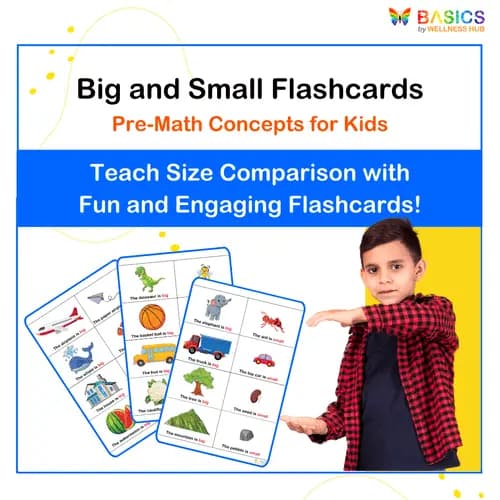
Big and Small Flashcards: Pre-Math Concepts for Kids
₹ 80.00
₹ 160.00
50% off
4.9 (48 ratings)
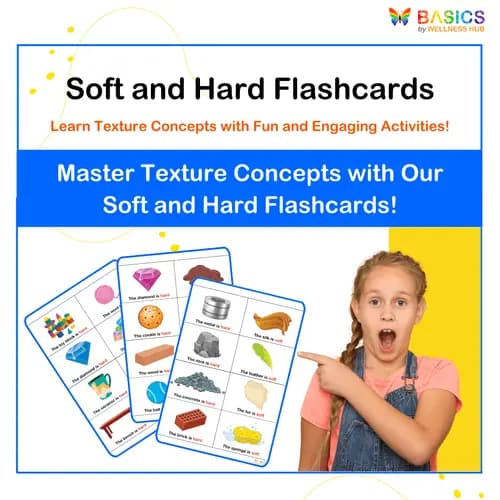
Soft and Hard Flashcards: Learn Texture Concepts with Everyday Objects
₹ 80.00
₹ 160.00
50% off
4.6 (58 ratings)
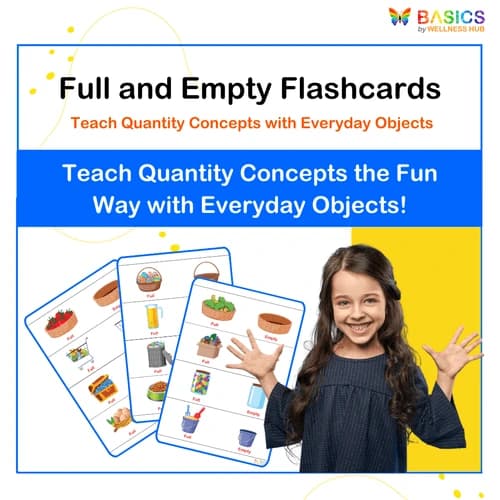
Full and Empty Flashcards: Teach Quantity Concepts with Everyday Objects
₹ 80.00
₹ 160.00
50% off
4.9 (54 ratings)
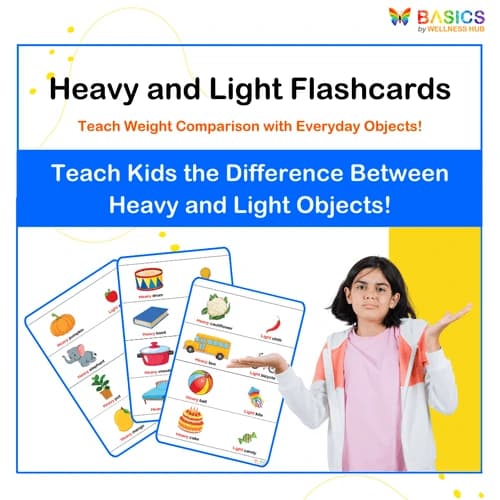
Heavy and Light Flashcards: Teach Weight Comparison with Everyday Objects
₹ 80.00
₹ 160.00
50% off
4.8 (50 ratings)
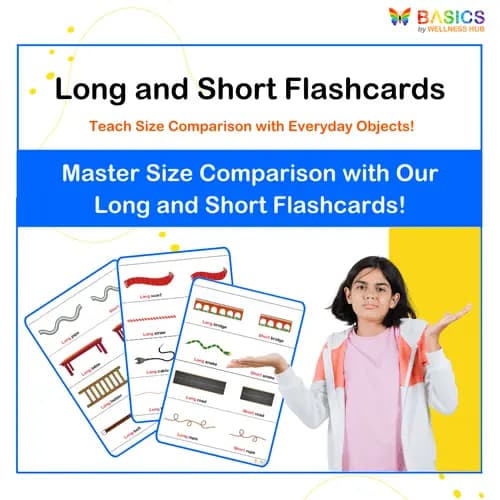
Long and Short Flashcards: Teach Size Comparison with Everyday Objects
₹ 80.00
₹ 160.00
50% off
4.9 (47 ratings)
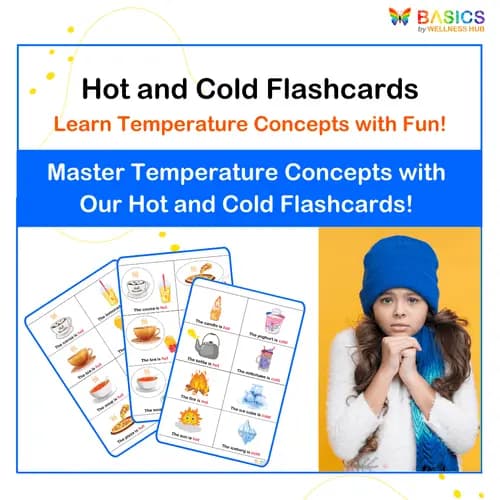
Hot and Cold Flashcards: Learn Temperature Concepts with Objects
₹ 80.00
₹ 160.00
50% off
4.8 (44 ratings)
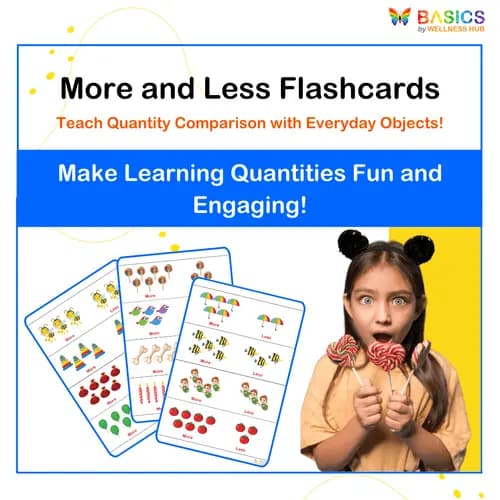
More and Less Flashcards: Teach Quantity Comparison with Everyday Objects
₹ 80.00
₹ 160.00
50% off
4.7 (56 ratings)
Real Parent Success Stories – How Math Skills Resources Help Kids Thrive
Our resources have positively impacted families and therapists, helping children make meaningful progress in speech and language development. Here’s what some of our users have shared:
The counting flashcards have been a great starting point. My son loves counting the objects, and he’s starting to recognize numbers more confidently. It’s wonderful to see him excited about learning!
Anna, Parent
These testimonials reflect how our resources make speech and language learning accessible and effective, empowering children and giving parents the confidence to support their growth.
Detailed Description
Introduction to Math Skills Resources
Math skills are foundational for problem-solving, logical thinking, and understanding the world around us. Early exposure to math concepts, such as counting, shapes, addition, and patterns, sets children up for success in school and everyday life. Our math skills resources are designed to introduce and reinforce these concepts in engaging ways, making learning enjoyable and accessible. With tools that build confidence and curiosity, parents, educators, and therapists can support children as they progress through essential math skills that will serve them for years to come.
How Our Resources Aid in Math Skill Development
Our math resources are crafted to make foundational math skills approachable and fun. From counting exercises and shape recognition to early addition and subtraction, each activity is designed to reinforce key concepts. Flashcards and counting games promote number recognition and sequencing, pattern-building activities foster logical thinking, and problem-solving puzzles develop analytical skills. These resources provide hands-on practice that strengthens understanding and encourages children to explore math confidently at their own pace.
Types of Math Skills Resources We Offer
Counting and Number Recognition Flashcards: Our counting flashcards introduce children to numbers and counting in a fun, visual way. By practicing with these cards, children learn to recognize and name numbers, count objects, and understand quantity, setting a strong foundation for further math concepts.
Shapes and Patterns Activities: Shape and pattern activities help children identify basic geometric shapes and understand patterns. Through interactive exercises, children practice recognizing shapes, matching them to real-world objects, and creating and continuing patterns, all of which foster spatial awareness and early geometry skills.
Addition and Subtraction Practice Cards: Our addition and subtraction practice cards introduce simple math operations. These cards provide visual aids to help children understand basic addition and subtraction, encouraging hands-on learning that supports early calculation skills and number sense.
Problem-Solving and Logic Puzzles: Logic puzzles and problem-solving activities build critical thinking skills. These exercises challenge children to think analytically, approach problems from different angles, and work through solutions step-by-step. These resources are ideal for enhancing reasoning and perseverance, essential components of math learning.
Who Can Use These Resources?
Our math skills resources are versatile and suitable for use by:
Parents: Integrate math learning into everyday routines at home to reinforce school-based learning and build comfort with numbers.
Teachers: Use these resources in the classroom to introduce or reinforce foundational math skills in fun, interactive ways.
Therapists: Apply these tools in therapy sessions for targeted support, especially beneficial for children who need extra help with math concepts.
These resources are designed to be easy to use, providing an effective, enjoyable way to help children strengthen their math skills and confidence.
Benefits of Math Skills Activities at Home
Practicing math skills at home offers children a comfortable environment to explore numbers, patterns, and problem-solving. These resources make it easy for parents to engage children in hands-on math practice, building familiarity and fluency with foundational concepts. For children who may find math challenging, these structured yet fun activities provide repeated practice that enhances understanding and retention. By integrating math into everyday life, parents can help their children develop a positive attitude toward math and a solid base for future learning.
Tips for Using Math Skills Resources Effectively
Using our math skills resources effectively can make early math concepts engaging and approachable for children. Here are some practical tips:
Start with Visual and Hands-On Activities: Begin with counting flashcards or shape-matching exercises to introduce math concepts visually and tangibly. This makes abstract ideas more concrete and understandable.
Incorporate Math into Daily Routines: Use everyday opportunities to reinforce math concepts. For example, counting fruits while shopping, identifying shapes in the home, or setting the table with a certain number of items can make math feel relevant and practical.
Encourage Repetition and Consistency: Repeated practice helps solidify new skills. Integrate short, regular math sessions to build comfort with numbers and patterns. Keep sessions brief and engaging to maintain interest.
Use Playful Problem-Solving Activities: Engage your child with puzzles or simple problem-solving exercises that promote logical thinking. These activities can be both educational and entertaining, helping children see math as a fun challenge.
Celebrate Achievements: Acknowledge each accomplishment, no matter how small, to encourage a positive attitude toward math. Celebrating progress builds confidence, motivating children to tackle more complex tasks.
Real-Life Examples of Math Skills Development with Our Resources
Our math skills resources are designed to make learning math practical and enjoyable. Here are some examples of how they can be used effectively:
Building Number Recognition with Counting Flashcards: A parent might use Counting Flashcards to help their child recognize numbers and practice counting. By identifying and counting the objects on each card, the child develops a foundational understanding of numbers and quantities.
Exploring Shapes and Patterns with Interactive Games: A teacher could introduce Shapes and Patterns Activities in the classroom, allowing students to sort and match shapes or create patterns. This hands-on experience reinforces spatial awareness and helps children understand how shapes relate to everyday objects.
Introducing Addition and Subtraction with Practice Cards: A therapist might use Addition and Subtraction Practice Cards with a child learning basic math operations. By visualizing math problems on the cards, the child gains a better grasp of addition and subtraction, building confidence in calculation.
Enhancing Problem-Solving Skills with Logic Puzzles: A parent could use Logic Puzzles to encourage critical thinking. These activities require the child to approach problems systematically, helping them develop reasoning and analytical skills that are essential for math.
These examples show how our resources support various aspects of math learning, from foundational skills to higher-level problem-solving, in a fun and meaningful way.
FAQs
Q1: How do I start using these resources with my child?
A1: Begin with basic concepts, such as counting and shapes, using flashcards and simple matching activities. Short, consistent sessions are effective, and as your child becomes more comfortable, you can introduce more complex resources like addition cards or logic puzzles.
Q2: Which resources are best for building problem-solving skills?
A2: Our Logic Puzzles are excellent for developing problem-solving skills, as they encourage children to approach challenges systematically and build reasoning skills.
Q3: How often should I use these activities?
A3: Consistent practice is helpful for math skills development. Aim for short, daily sessions of about 10–15 minutes to reinforce learning and build confidence over time.
Q4: Are these resources suitable for children who find math challenging?
A4: Yes, our resources are designed to make math approachable and enjoyable for all learners. Starting with visual aids and hands-on activities helps build a strong foundation, making math concepts easier to understand.
Related Topics and Further Learning for Parents
For parents interested in additional math support, the BASICS app offers resources and courses that can aid in developing early math skills:
Counting and Number Sense: A course focused on building number recognition, counting, and early quantitative understanding.
Shapes, Patterns, and Geometry: Resources that introduce shapes, patterns, and early geometry concepts, helping children connect math to the real world.
Basic Addition and Subtraction: Activities that offer hands-on practice with addition and subtraction, reinforcing basic math operations in an accessible way.
Problem-Solving and Logical Thinking: A course aimed at enhancing critical thinking skills through logic-based games and puzzles, fostering analytical skills from an early age.